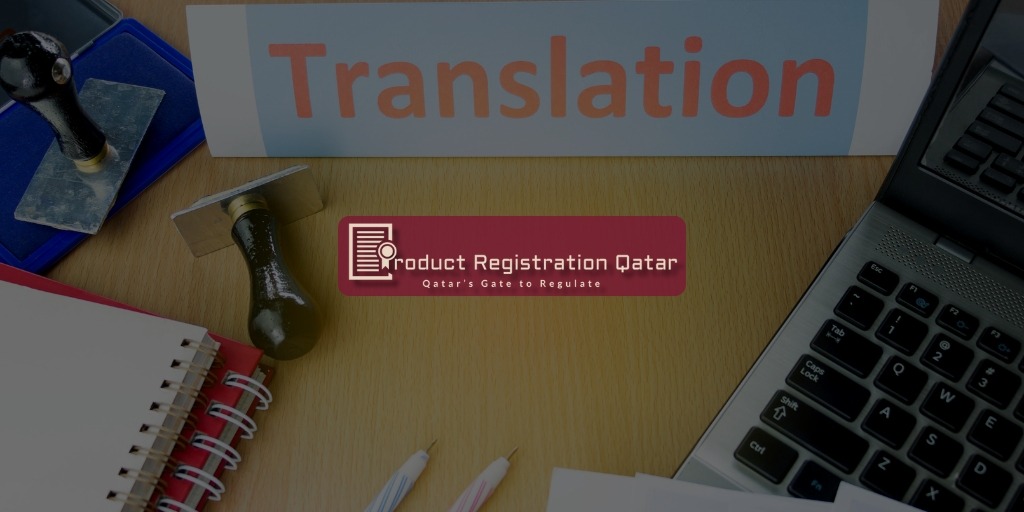Get MENAT Product Approval: Translation Essentials (2025)
Mistranslations cost approvals. Learn how accurate document translation ensures fast product registration across MENAT under MoPH and local laws.
BLOGS
7/18/20253 min read


Get Your Product Label Approved in MENAT:
2025 Labeling Rules Guide
Product labeling is no longer just about design and translation—it’s about compliance, credibility, and avoiding rejection across MENAT countries, especially in Qatar and the UAE.
If you’re trying to register a food, supplement, cosmetic, or household product, a non-compliant label could get you rejected before your dossier is even reviewed.
In this guide, we cover the essential labeling rules for MoPH Qatar, the UAE (ESMA/MoIAT), and other MENAT regulatory authorities.
Let’s look at what makes a label pass or fail—and how to get it right.
What Are the Common Labeling Mistakes That Get Products Rejected in MENAT?
Across Qatar, UAE, and the wider MENAT region, some of the most frequent label-related reasons for rejection include:
Missing Arabic translation or poor-quality translation
Using unapproved or misleading health claims
Font size below legal minimum (especially for ingredients)
Expiry or production dates not formatted correctly
Incomplete manufacturer or importer details
Not aligning with the approved product formula
These issues are surprisingly common, especially when labels are copied from global versions without local adaptation.
Qatar MoPH Labeling Requirements: What You Need to Know
The Ministry of Public Health (MoPH) in Qatar requires:
Full Arabic labeling for all retail products
Ingredient list, nutritional information, and usage instructions
Batch number, production, and expiry dates in proper format
Clear declaration of allergens
No therapeutic or unapproved health claims
Country of origin and importer details
For supplements and functional foods, your label must exactly match your registered formula and dossier.
UAE Labeling Regulations: What Does ESMA / MoIAT Expect?
In the UAE, MoIAT and Emirates Authority for Standardization and Metrology (ESMA) require:
Labels in both Arabic and English
Compliance with UAE.S GSO standards for specific categories (e.g. GSO 9 for food)
Allergen declarations and halal status (if applicable)
Barcode and batch traceability
Nutritional data aligned with approved lab reports
Specific claims (e.g. organic, low-fat) only if certified
Cosmetics, household products, and supplements each follow different GSO standards.
Getting labeling right is not just about approval—it’s about keeping your product on shelves long-term.
Label Validation: Why It’s Not Optional Anymore
Authorities now expect a clear Label Validation Report as part of your registration dossier.
This is an official document that confirms your label:
Matches the technical file
Meets all formatting and language rules
Carries no misleading or banned claims
Without this, you risk rejection or post-market penalties.
FAQ: Labeling Compliance in MENAT (2025)
Q: Can I register my product in Qatar without Arabic labeling?
A: No. Arabic is mandatory and must be legally correct.
Q: What if I use a sticker for Arabic instead of printing?
A: Stickers are accepted in some cases, but must be permanent, legible, and approved.
Q: Can I claim “boosts immunity” on my supplement label?
A: Only if your formula supports that scientifically and is approved by MoPH.
Q: Are there different rules for e-commerce vs retail labels?
A: Retail products must comply with physical labeling laws. E-commerce may have extra requirements.
How We Help You Get Label Approval in MENAT
At Product Registration Qatar, our regulatory team offers:
Label review and validation reports
Full translation and localization into Arabic
Health claim justification based on science
Compliance checks for Qatar, UAE, and other MENAT markets
Updates on new GSO/ESMA/MoPH labeling rules
Our job is not to "translate" your label. Our job is to get it accepted.
Final Thoughts
Labeling in MENAT is one of the top reasons products fail at registration or post-market inspections.
It’s not just a design task—it’s regulatory compliance.
Don’t risk rejection with a label that looks good but breaks the rules. Let our experts review, fix, and validate it before you apply.
Continue reading:
Bulletproof your label claims: Supplement Market Authorization in Qatar
Avoid the top causes of failure: MoPH Product Approval Failures in Qatar – Fix Guide (2025)
Build a complete application: Gather MoPH and MENAT-Ready Product Dossiers (2025 Guide)
Need expert guidance through Qatar’s regulatory maze? Our consulting services simplify the process.
Learn how GMP compliance affects supplement approval in Qatar in our latest guide.
Need help?
Use Our Chatbot in the bottom right corner or book a free consultation now.
Ready to Ensure Your Product is Fully Compliant?
Fill out the form below and let our experts guide you through label checks, formula validation, and registration—step by step.


